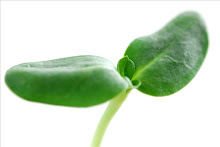- Greenwash (a pormanteau of green and whitewash) is a term used to describe the practice of companies disingenuously spinning their products and policies as environmentally friendly, such as by presenting cost cuts as reductions in use of resources. It is a deceptive use of green PR or green marketing. The term green sheen has similarly been used to describe organizations that attempt to show that they are adopting practices beneficial to the environment.
Some of the most blatant examples of green washing is to simply slap a green leaf on the packaging and call it pure, natural or organic. The current Power of Human Energy campaign by Chevron is a prime example. They have spent $15 million coming up with some great diddies that are plastered on buses and billboards touting statements such as "I will carpool to work" and "I will use less energy" while being listed as one of the top ten corporate polluters. Chevron has been fined more than $300 million by the Kazakhstan government for environmental violations and $1.8 million in the United States for their water and air pollution violations at their Richmond, California refinery. One can only hope that there is some truth to their promise of investing in clean and efficient energy options.
Bamboo. Ah, bamboo. Everyone loves bamboo these days. It is the "it" item to have, install, wear. Granted, bamboo is a rapidly renewable resource but there are several additional factors that should be considered. For instance, with wood floors. There is a knee-jerk reaction to install bamboo flooring without looking deeper at the environmental implications that can be at play. Urea-formaldehyde is an incredibly noxious chemical that can be found in adhesives in many wood floor options. It is very important when installing bamboo, or any flooring, that it is a UF-free product. Next, you should inquire as to where your bamboo flooring is coming from. Quite frequently you can find a bamboo product that has travels to five different countries for total assembly. Bamboo in one country. Adhesives in another, assembly in a third. So yes, bamboo is a sustainable choice but not if its travels half way around the world and contains dangerous chemicals that will off gas in your home for the next twenty years. Plyboo is just one of many great flooring option available within the U.S.
So what's the moral of all this blabbering? Ask questions and think about the big picture when looking at "green" products. Things are not always as they seem.

No comments:
Post a Comment